#Norse culture
Explore tagged Tumblr posts
Text
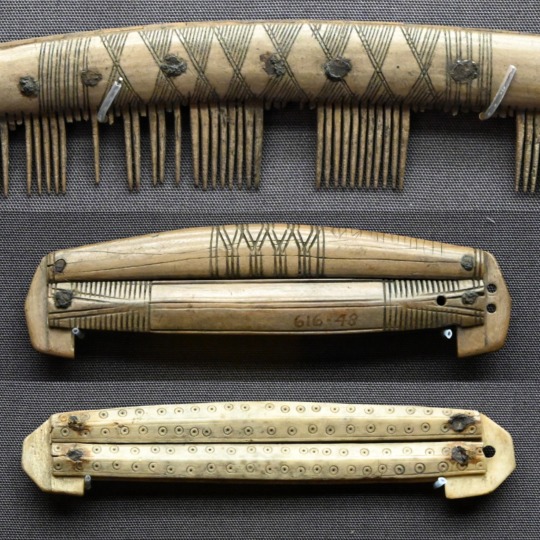
Viking Decorated Bone Combs and Handles, The Yorkshire Museum, York
#viking#viking comb#combs#decoration#symbols#viking culture#vikings#norse culture#archaeology#yorkshire#York#ancient living#relic#artefact
426 notes
·
View notes
Text
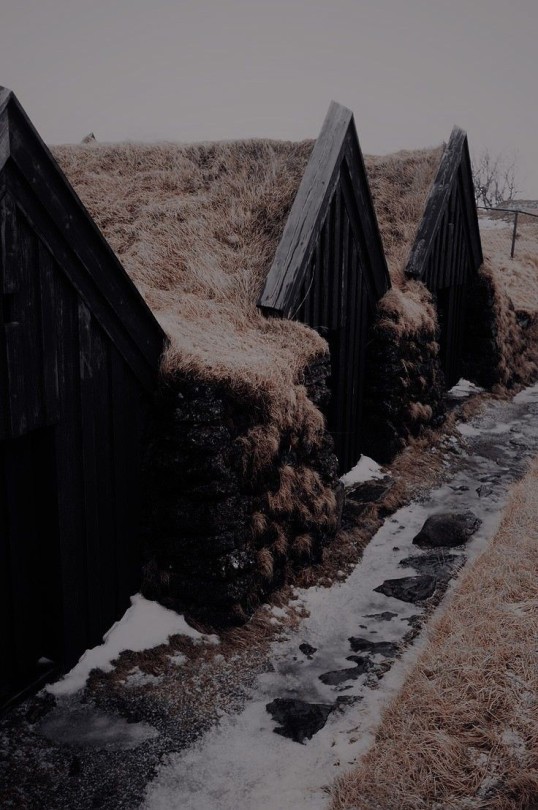
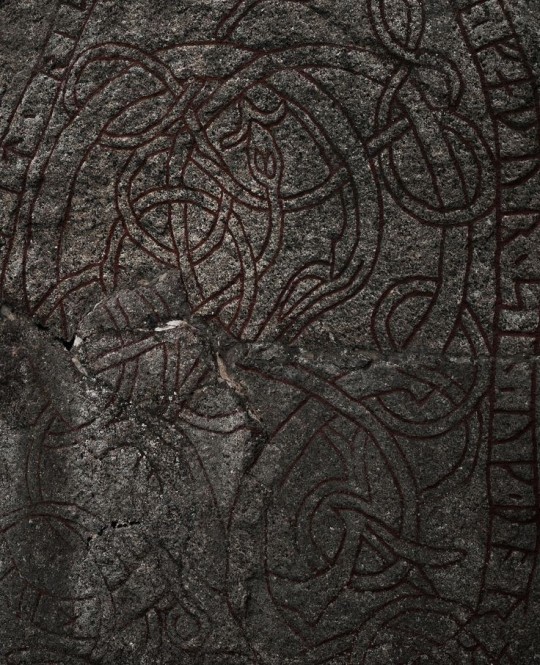
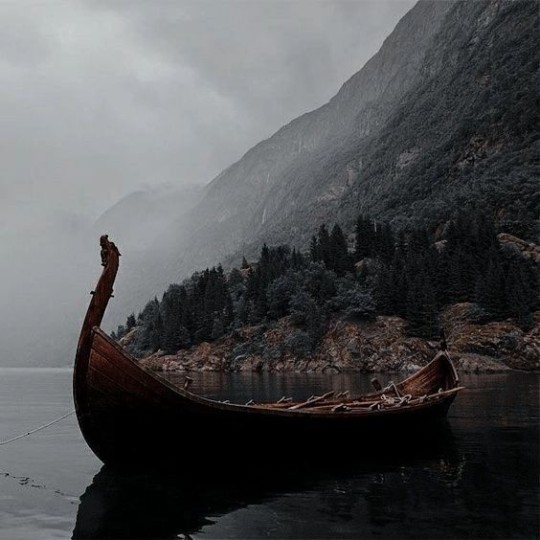
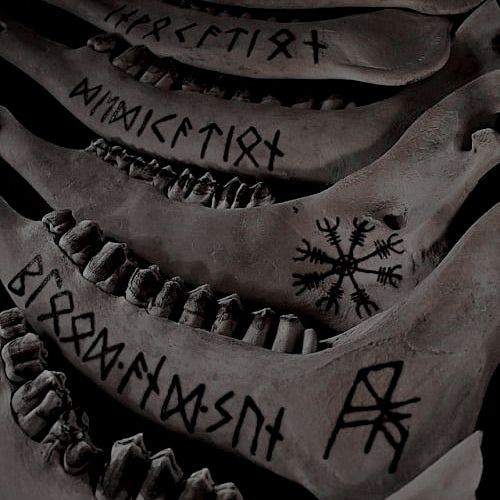
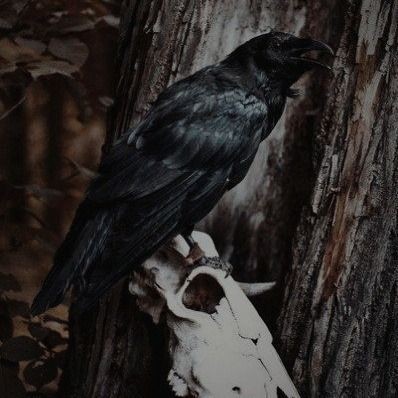
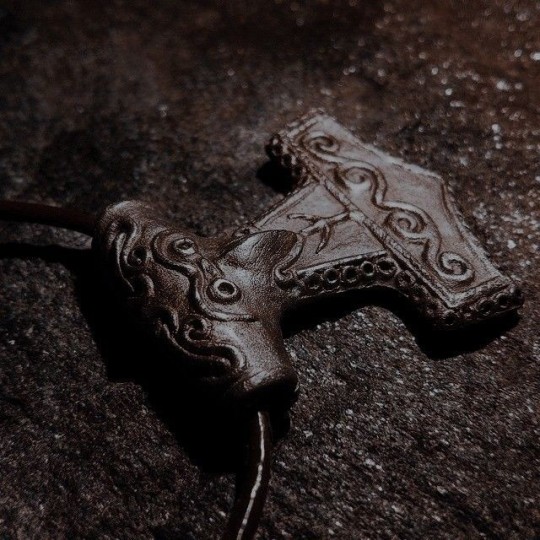
#vikings#vikings moodboard#viking runes#vikings history#viking#norsemen#norse gods#norse culture#norseman#norse mythology#norse#norse music#norse magic#norse pagan#norse paganism#norse pagan witch#norse polytheism#norse folklore#scandinavian#scandinavia#scandinavian mythology#scandinavian folklore#scandinavian landscape#medieval aesthetic#viking aesthetic#vikings art#medieval moodboard#medieval#medieval combat
741 notes
·
View notes
Text
Okay serious question about norse mythology and norse culture... Is it OK to eat some or all of an offering you've given to a god you are worshipping?
#lokean#loki#norse loki#loki deity#norse deity#norse gods#norse mythology#norse culture#culture#deity#question#witchblr#witchy#witch#help please
211 notes
·
View notes
Text
Random Fact #6,522
The Vikings did not call themselves “Vikings”.
The word “viking” as a noun wasn’t a thing until the 1800s when the Scandinavian countries were looking to create a sense of nationalism. The people commonly called the Vikings would have called themselves the Norse. To them, viking was a verb, not a noun, which roughly translates as “to go raiding”.
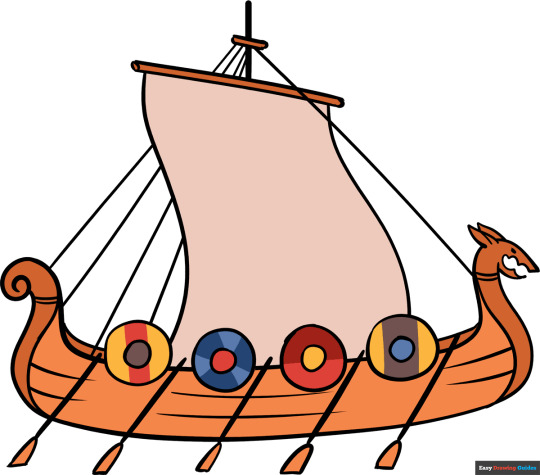
#little known fact#random fact#random facts#did you know#random factoid#random factoids#history facts#vikings#viking history#scandinavia#norse culture
30 notes
·
View notes
Text
To Feed the Ravens - Armored Core VI and Norse Culture
In Norse society, to "feed the wolves" or "feed the ravens" was a poetic way of saying "to go to war", as both wolves and ravens will scavenge the dead on a battlefield (feeding the eagles was also used to say this).
This is fitting for C4-621 and V.IV Rusty, as they are represented as a raven and a wolf, those that feed on the dead, and given the skill of the two pilots relative to those around them, it certainly feels like they are feeding on those who are already dead.

#armored core#armored core 6#armored core vi#armored core series#fires of rubicon#mech#mecha#scifi#science fiction#norse culture#norse mythology
38 notes
·
View notes
Text


Magnus Williamson, Dauphin de Viennois et Le Héritier Presomptif du Royaume d'Aquitaine and his shieldbearer, a Greuthungi savage from beyond the charted frontiers of The Known World whom he personally named Joe Allen Hayes were sitting by the fireplace of his personal apartment at Oberlin Castle, strategically situated at the base of a mountain junction within the northernmost frontiers of Margrabia Mazowsza, sipping hot cups of Xicolatl infused with massive amounts sugar imported all the way from the distant continent of Chupayotl across the great oceans separating The New World from The Civilized World, while wearing a tunic and pantaloons crafted from the most luxurious and sumptuous Khashabarii silks imported by Erizen and Ashuryan silk merchants all the way from The Caliphate of Khashabar, richly dyed with the heraldic liveries of The Aquitainian Monarchy, embroidered with gilded thread, and encrusted with shining emeralds imported from the gem mines of Das Königreich Schönbrunn. This eight foot tall tower of muscle and wrought iron was a dour, stoic, cold man of few words who never seemed to laugh, flinch, or even smile throughout the entire decade that he had served as a household retainer within the personal coterie of Le Dauphin de Viennois. Dauphin Magnus was curious to learn more about Hogriket Jotunheim from beyond the charted frontiers of civilization that allegedly birthed this seemingly voiceless, expressionless, and stone cold pillar of manly might and chainmail. Magnus was curious to learn specifically about the so-called Björn Stormson, the dreaded and infamous High King of The Twelve Tribes of The Greuthungi who inhabited this godsforsaken, barbarian, heathen kingdom that was only mentioned in the hushed murmurs of Mazowiecki traders and navigators operating within the continent of distant Maharaj. That exact same High King of Jotunheim who had recently sacked, plundered, and pillaged the whole expanse of Rus'skaya Tsarstvo under Rod Vojvodin Bol'shogo on their trajectory towards the northwestern periphery of The Empire of Mankind Secundus. Impatient in tolerating the prolonged silence and the monotony within the confines of his aesthetically Spartan quarters any further, Le Dauphin of Viennois and Le Héritier Presomptif du Royaume d'Aquitaine broke the seemingly uncounted hours of this unbearable silence and boredom between him and his most trusted retainer as the fireplace chimney billowed ash and smoke into the winter sky of Polnocnej Marchia.
"Of all the warlords and princely generals of repute that dominate the battlefields and court intrigues of this blessed world, I am equally curious and trepidatious to seek any who I honestly cannot outmatch in single combat. Maybe not Edward Fitzroy, Titular Duke of Huntington. From what my father's official emissaries and personal heralds tell me, that young man has been drilled and educated extensively by The Emerald Legion's world renowned quartermasters and drill sergeants at my family's summer residence at Chateau Lafleur, the boy has already demonstrated the battlefield temperament of a Norscan Baresark in Angels' Garb. A fine mix of skill and fury so very much emblematic of a holy and righteous angel of death and retribution, or the fist of an angry, vengeful god king eschewing his divine judgement upon the sinful and the faithless of the whole world. Nor perhaps Trothus VI, Blood King of Norsca. From the equally chilling and unsettling reports I gather from travelling heralds proliferating news of his alleged Slaughter of Dimashq, his equally unspeakable and unimaginable atrocities and war crimes transacted towards it's most unforntunate resident citizenry is the residue of my very worst nightmares. A truly monolithic and umbral avatar of madness and insanity incarnate, and hell let loose."
"The aristocratic, noble, feudal princeps and magnates collectively and officially represented within my father's royal court at Le Palais de Fontainebleau and Chateau LaFleur are fundamentally far too vain and arrogant. Vasily Vojvodin, Tsar of Rus'skaya and Grand Prince of Bolshoi is unapologetically and explicitly far too bloodthirsty and mentally unstable. Conrad Von Buchenauer, Herzog von Solingen is simply too austere and conservative. Boleslaw III "Chobry," Margrave of Mazowsze is paradoxically far too frigid, arid, and cerebral to truly enjoy the thrill of the joust and the duel, despite having rightfully earned his sobriquet "The Brave" in the battlefields of Northern Mazowsze. Friedrich I, König von Middenland and Albrecht Von Biermann, Markgraf von Brannenborg have irredeemably grown too adamantly stubborn, intolerant, and inflexible from consistently defecating more-or-less the exact same nonsensical and obscene blasphemies, heresies, and infidelities of their damnable creed originally drafted and published by that perfidious heretic Karl Von Luxembourg, Ph.D at Die Universität Wörtzburch in Das Herzogtum Solingen. Adriano Martini, Il Console-Eletto de La Repubblicca Serenissima di Toscana and Il Presidente Offiziale Della Lega Olympica is a Machiavian snake who cowers in the shadows like a sewer rat, spinning his intricate and labyrinthine web of intrigues and schemes within The Holy Sept at Romulus, Cosmopoleis simply by leveraging his "elected" suzerainty over the baronial and knightly houses who form the cream, core, and bulk of the ruling class of aristocracy and nobility in La Serenissima, rather than daringly and courageously bringing the full might of his honest steel and his force of powder against his enemies in righteous, glorious battle. And everyone knows about my personal and direct confrontation with The Crown Prince to The Reigning Khashabarii Caliph traditionally seated at that bloated expanse of a megalopolis known as Beshabilit, when he idiotically threw himself, head first, at the vanguard of a seemingly and equally numberless and uncountable mass of unwashed, untrained, unskilled, undisciplined, and ill-equipped Erizen and Ashuryan tribesmen upon the mighty bastions of Oberlin Castle, without using any siege guns or even simple windlass artillery pieces to help him breach the outer curtain. However, for reasons that continue to confound and disease me, in equal measure. Even after months of thoroughly obsessing and agonizing over the same predicament. Björn Stormson as The Hogkunung of The Greuthungi has finally arrived upon the northwestern periphery of The Empire of Mankind Secundus at the forefront of an equally mighty and terrible horde of godsless, barbaric, unwashed, heathen savages from beyond the charted frontiers of civilization. Leaving nothing but blood, desolation, and misery since their initial sighting beyond the northernmost frontier of the Rus'skayan hinterlands. Should Polnocnej Marchia and Oberlin Castle be en-route of their path of conquest and devastation, could I singlehandedly spare the lives of all the men under my personal command and my direct supervision, as well as those of the local population under my protection by coming to a direct resolution with him in single combat?"
Cold Sweat condensed over Le Dauphin de Viennois' right brow as he witnessed in horror and disease at the barely contained dread, anguish, and torment quietly expressed within Joe Allen Hayes' tortured and tormented eyes. This grizzled and bloodied veteran of over two dozen pitched battles, sieges and countless minor skirmishes whom he had never known to fear or dread any foe on the field of battle, regardless of their individual strength or their collective numbers. Over two minutes after staring blankly in horror into the empty void of the blazing fireplace in Dauphin Magnus' Quarters, The Former Greuthungi Baresark finally broke his agonized and dreadful silence in an equally blood curdling and cryptic fashion.
"I fear no man who treads upon the face of the blasted earth, my lord. But I am unsure if daemon is strong enough a noun to describe the full power, horror, and terror of that twisted thing who calls himself The High King of Jotunheim. Regardless of whether you directly confront his presence on the battlefield or as a guest at his mead hall feasting and drinking in the presence of the council of his Jarls and Huscarls, he is not a human being at all, but the living, breathing incarnation of slaughter and Tartaros. Only the mythical and blessed demigods described within the holy scriptures of The Canons of The Old Gods and The New Gods, or the archangels of Hyperion as the highest echelon of divine emissaries to The King of The Heavens and The God-King of The Canon Pantheon of The New Gods can hope to best The High King of Jotunhem in single combat."
"You're lucky I don't truly fear the wrath of the gods. For if I truly did, I would have had you burned at the stake for this heresy and blasphemy of the highest order." Begrudgingly uttered Le Dauphin de Viennois, uncertain of the ultimate fate or the eventual destiny of the peoples of The Civilized World.
#coats of arms#heraldry#shields#medieval#renaissance#Norse culture#vikings#swords#fantasy#fantasy world#graphic design#art#character portraits#Björn Stormson
5 notes
·
View notes
Note
hello! I was wondering about the ushaan tur ( I don't think I spelled that right) what would be the qualifications to challenge someone?
Also somewhat random question, I was wondering what your thoughts were on the episodes babel one and United on Enterprise?
Thank you
Hello, hello! Thanks for dropping by!
In many ways, the ushaan reminds me of the old Norse custom of the holmgang which has many similar rules - though, thankfully, not nearly as many as the Andorians' have.
For comparison: A holmgang was a serious affair, in which - in theory - an offended person could challenge another regardless of social status regarding a matter of personal honour, disputes over ownership/property, to seek restitution or restoration of a debt, to settle legal disagreements, invoked with the intention to aid a spouse (usually a wife) or relative, or to avenge a friend. If a friend was clearly outclassed in a holmgang, a more capable warrior would often volunteer to fight in their place. The actual format of the duel could vary, with different rules, weapons, and locations depending on the region, the era, and so on. Some duels were to the death, but others were satisfied when the requirements agreed upon beforehand for a loss were met. If the person who issued the challenge failed to show up, they were deemed niðingr and possibly even declared an outlaw, a person outside of the protections of the law who could be killed or driven off with impunity.
(Please note: while niðingr often translates to coward or nothing, in reality it means so much more than that. It means that you are less than nothing, less than a person, utterly without honour or merit in all aspects of oneself. The insult has a simple translation but cultural nuances make it so much worse than just being called a coward. In fact, it is one of the worst things you could call someone else, and being called a niðingr was a grave offense that usually resulted in at least one person winding up dead at the end of it. Usually more. Usually quite a few more, actually. Very few people could run a generational feud like the old Norse did.)
Meanwhile, the Andorian ushaan is a rather more complicated affair, though it seems to run in the same vein as a holmgang. Canonically, the ushaan has between 9,000-12,000 amendments described in the Code of the Ushaan; there are exceptions, substitutions, deferrals, indefinite deferrals, and substitutions, and disqualifications which are all accounted for in painstaking detail.
We don't have many actual examples of some of the amendments and qualifications for the ushaan, but United did give us a few:
Hardship Deferment: Either combatant can postpone a duel indefinitely if there is determined to be sufficient hardship to justify the delay, pending approval by the opposing combatant or combatant's proxy. Religious Deferment: Either combatant can postpone a duel indefinitely based on specifically defined religious objections, pending approval by the opposing combatant or combatant's proxy. A member of any recognized religious order is forbidden from participating in ritual combat and must instead submit his or herself to discipline by the administrative body of the appropriate sect. Ancestral Exemption: If a combatant's family history includes an act of heroism, sanctioned by no less than three ranking government officials, said combatant may step down from the challenge after making and agreed-upon monetary restitution. Sibling Proxy: A sibling (male or female) of appropriate age that volunteer to take the place of a combatant, pending approval by the opposing combatant or combatant's proxy. Progeny Proxy: A son or daughter of appropriate age that volunteer to take the place of a combatant, pending approval of the opposing combatant or combatant's proxy; and if such substitution does not impose the clan contamination deferment. Clan Continuation: Either combatant can postpone a duel indefinitely if there are no children to continue his clan (...) [Source: ST: ENT S04E12 "United"]
Looking at what we know of the Andorian ushaan, there are a remarkable number of similarities with the Norse holmgang, which is why I made the comparison in the first place. I half wonder if the ushaan was inspired by the holmgang.
As far as we know, from the scant (I will never not bring this up. ST writers: do better) lore, we know that Andorians can issue a challenge for a ushaan duel to avenge a loved one, or to avenge their personal honour. Beyond that, we're actually not given a great deal of information on what other circumstances allow for a challenge, but I can't imagine that it isn't as highly regulated as everything else Andorians do.
For my headcanon purposes, there are several requirements that must be met for a challenge to qualify as legitimate:
Both parties must be considered legal adults, both physically and mentally. A child cannot challenge or fight in a ushaan. A near-adult cannot challenge or fight in a ushaan. Any such individuals who are found to have participated in a ushaan are deemed to have engaged in illegal duels and may face significant legal repercussions. Any adult individuals who knowingly challenge a child or near-adult will face official censure and severe legal and financial repercussions.
Both parties must be considered to be in their right mind - compos mentis - and therefore able to comprehend the consequences of their actions, immediate and future. Failure to meet this requirement results in the dismissal of the challenge entirely. A mentally competent individual who knowingly challenges someone who does not meet this requirement faces official censure and significant fines.
Both parties must be assessed to be physically fit enough to participate in the duel, or have substitutes who are. Failure to meet this requirement may result in a deferral until the unfit party is a) deemed fit by a medical professional or b) can locate a fit substitute. Failing to meet this requirement and proceeding regardless results in an illegal duel, and both parties will be censured and fined.
The root cause of the duel must be considered legitimate. To be considered legitimate, the causes must be a) provably traceable to the challenged individual, b) cause significant duress or hardship to the challenger, and c) represent a significant loss or slight to the personal honour of the challenger, or the party the challenger acts on behalf of. Failure to meet these requirements results in the dismissal of the challenge and, pending review by arbiters, may result in censures and fines for the challenger.
If we look at the situation presented in "United", Shran's challenge meets these requirements across the board. The Telleraite in question, Naarg, is a fully grown, adult member of his species in good health and mentally competent enough to be serving as an ambassadorial aide. His is directly responsible for Talas' death (which had multiple witnesses and cannot be contested under Andorian law) and, damningly, acted after the situation had been defused - well outside the timeframe that would have allowed for self-defence. Talas' death, as Shran's paramour or bondmate, would have constituted a significant emotional hardship and personal loss, and being slain while acting as an Imperial Guardsman by an 'inferior' enemy would have been disgraceful for Talas - which fulfills that requirement as well.
By Andorian laws and customs, Shran's challenge - while poorly timed and very much at odds with his government's desire for calm negotiation and measured diplomacy at the time - was perfectly legitimate. That Shran already had his blood up about Tellarites prior to the challenge would be considered a relevant but largely inconsequential detail which would likely only be taken into account if the challenge had been deemed illegal or of dubious legality.
As for your other question: I actually really enjoyed United and Babel One! We got a little bit of everything in those episodes: intrigue, action, Romulans doing Romulan chores, Andorians and Andorian lore, Jeffrey Combs, character development across the board, Archer actually doing something intelligent despite his many, many concussions, Trip being put into even more Situations™️ (with bonus Reed being put into Situations™️), and our first look at the Aenar! What's not to love?
Were the episodes perfect? Of course not. Did I adore them anyway? Absolutely.
#star trek#andorian#andorians#headcanon#Ushaan#Code of the Ushaan#Andorians litigate everything#st: ent#star trek enterprise#holmgang#Norse culture#Andorian culture
6 notes
·
View notes
Text
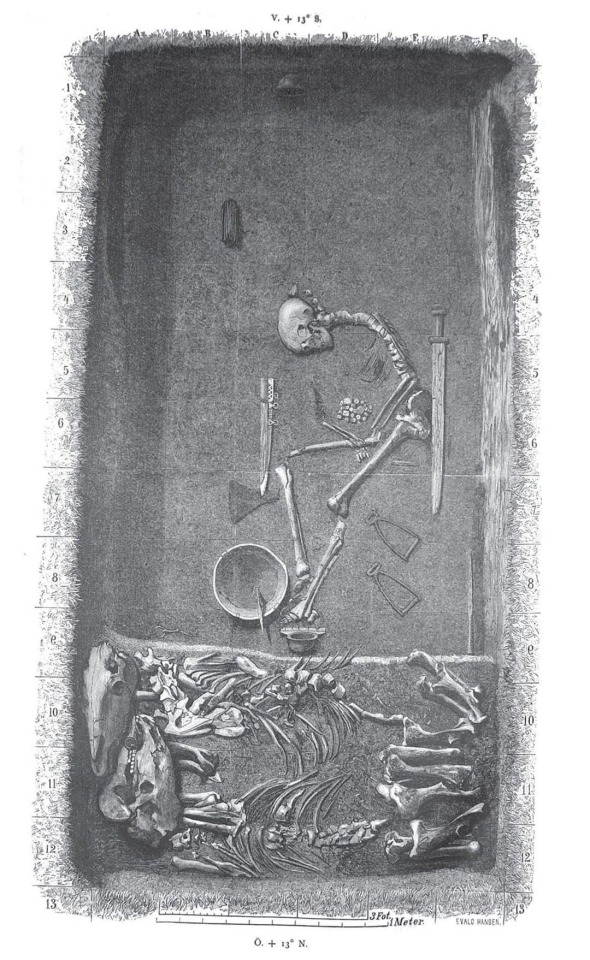
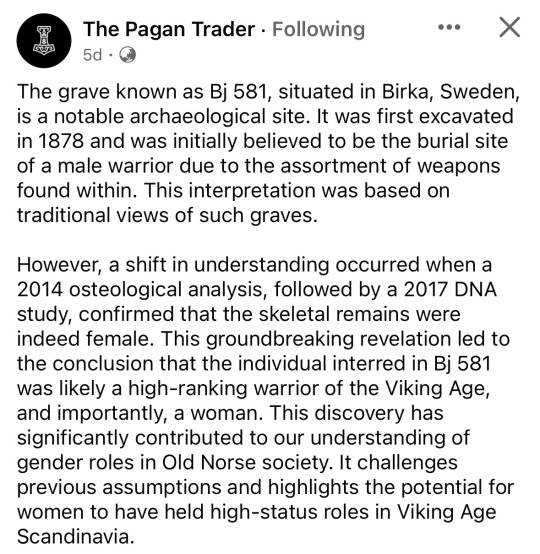
3 notes
·
View notes
Text
Heilsa!
Book I am reading early this morning is, The Poetic Edda by Snorri Sturluson, translated by Carolyne Larrington. I've read other translations as well; Jackson Crawford and also Lee Hollander, which aren't bad in any way, but so far I'm really enjoying Larrington's version. I recommend 💯 this read to all my fellow heathens because this version is very easy to follow, has both Old Norse and English translations.
“godt nytt år!” (Happy New Year)
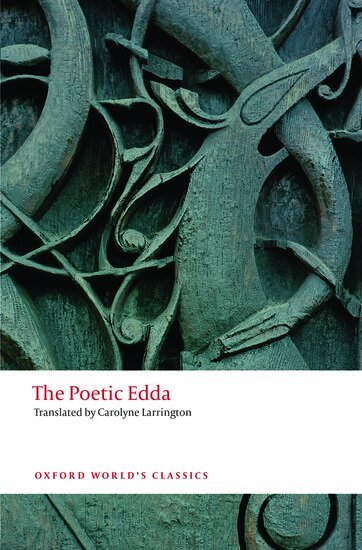
#norse#heathen#pagan#paganism#Snorri Sturluson#the poetic edda#norsegods#norse myths#codex regius#asatru#norsepagan#norse paganism#heathenry#heathenism#stories#poems#Kennings#edda#skaldic poetry#norse culture#literature#philosophy#old gods#icelandic#iceland#scandinavia#norse mythology#norse folklore#norse gods#mythology
37 notes
·
View notes
Text
youtube
Excellent video on what we know (or rather don't know) about gay men in the Viking Age.
6 notes
·
View notes
Photo
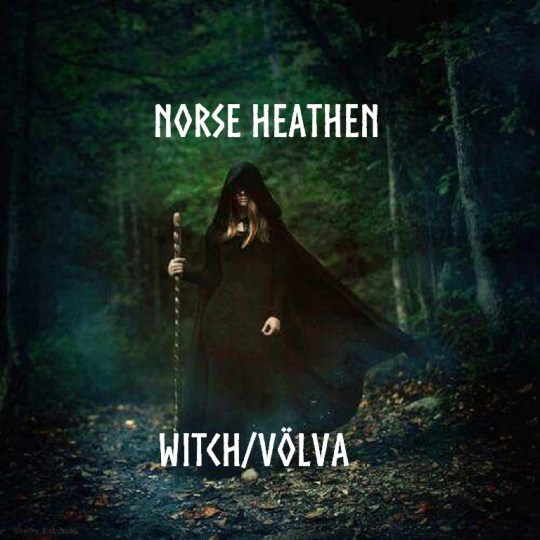
Norse Heathen Witch / Völva
#Norse Culture#heathenry#paganism#witchcraft#occult#esoteric#nature spirituality#witch#volva#norse pagan
4 notes
·
View notes
Text
Just thinking about the time when ⚪ Americans specifically, who have no connection to Norse culture(vikings), started loudly using their language and culture for white supremacy. Some museum out there was like, "Um... We actually do not like you racist ass niggas."
Tickles me every time I think about it.
#they didnt say it like that obviously!!!#im black#norse culture#vikings#sorry if im using the wrong name for the culture fam
0 notes
Text
"The Northman"
ᚦ︍ᛖ᛫ᚾᛟᚱᚦ︍ᛗᚨᚾ
(2022)
Fate, destiny, past, choices and revenge.
Analysis with vedic astrology and norse mythology and shared themes between them.
Intro and disclaimer:
First of all I want to say that I absolutely adore this film. The visuals are unbelievably gorgeous and enthralling(no pun included) and the overall feeling it always gives me is so raw and brutal and beautiful. Makes me feel like I've witnessed history or mythology come to life, which I think was the aim of the movie.
Next thing I want to say is that by analyzing this amazing piece of work with vedic astrology I by no means want to disrespect or cheapen the beautiful themes of Norse mythology and culture woven and represented in it. I am neither Norse nor Indian by ethnicity, but I've always loved Nordic culture and will always have a very very deep appreciation and love for it. If you're Nordic, forgive me if a coorelation I notice is wrong to you. This is just something I'm doing out of my desire to share my love for them.
So, just ignore an observation if you feel it's wrong, or politely write your thoughts down in comments.
Also, spoilers ahead.
With that being said, let's begin.

"Hear me, Ódinn, all-father of the gods. Summon the shadows of ages past, when the thread-spinning Norns ruled the fates of men. Hear of a prince’s vengeance quenched at the fiery gates of Hel, a prince destined for Valhöll. Hear me!"

The film begins with what I understand is a prayer to Odin_ the allfather in Norse mythology. With no character in sight, but a view of a fiery mountain and a booming, raw, male voice coming seemingly out of nowhere. That sets the tone for the whole movie.
If we view Norse mythology as a whole, there are a few themes that stick out to me, and I think they say a lot about the people who believe(d) in it. There is a prophesized end of the world, where even gods die: ragnarok. The gods of the norse pantheon are also pretty human-like in their nature(of course that does not make them less powerful, if anything, to me it makes them more relevant): they make mistakes, they get into all sorts of stuff that from our viewpoint is very messy. There is also a continuing theme of ragnarok being inevitable and fated, and multiple goddesses knowing of what is to come, notably Frigg, who is said to know the fate of everyone and everything but stays silent.
These themes of mortality, endings, fate, inevitability and the passive feminine power remind of one nakshatra in vedic astrology: Bharani, that has all these as its main themes. It also my moon nakshatra and that makes me think that maybe there is a reason why I've always loved Nordic culture so much😭 but let's get back to the movie.
The feeling of helplessness that those themes evoke is a very human condition. Bharani deals with the trials and the limitations of the material world. We, as humans, have our limitations and boundaries of what we can live and what we can know. Moreover, there is an acknowledgement that something higher and more powerful might be directing our lives. The theme of one's fate is, for many, not set in stone, but what if it was? What if everything everyone ever does is predestined? If so, can one change their fate? How can one change their fate? Is all this worry of destiny simply something that higher powers instill in us, just for life to go its own way again? These kinds of questions are what Bharani deals with.
We can go into a deep hole with these questions but nevertheless, no matter the answers, in one way or another, humans end up asking themselves if free will exists. The very act of contemplating one's place in the world and the reasons behind what was, what is and what can be is a human condition in and of itself. There are also themes of revenge, love, tying up past loose ends and uninhibited passion associated with Bharani.
Norse mythology emphasizes those themes. And so does this movie.

Amleth, the main character, is the son of King Aruvandill ("the war raven", raven being a symbol of Odin, the god that the king and Amleth favored). He sees his fathere murdered by the king's brother, his own uncle as a young boy. He manages to flee the kingdom in a ship and vows to himself to avenge his death and take back his birthright to rule.
Now I want to bring in another nakshatra that in some ways has commonalities with Bharani_ Magha.
Alexander Skarsgård, who plays adult Amleth is triple Magha_ Sun, Moon and Rising. Magha is a Ketu ruled nakshatra in the sign of Leo(ruled by the Sun). It's your past, subconcious and inheritance filtered through your identity and pride(Sun), that's why it's associated with royalty and ancestry. Bharani also deals with ancestors and past, and the yoni animals of these two nakshatras(elephant and rat) are said to have a special relationship. They are also both the main two nakshatras that have the same themes as this film.
After years, we see Amleth, who has grown up to be a ruthless warrior, on slavic lands, raiding a village with others, seemingly having put his past behind him. Throughout the story he tries multiple times to ease, change or completely escape his destiny but gods, very ominously, keep reminding him that it's pointless. After the village raid, he sees a raven, and then hears of his uncle's fate. A seeress visits him at night, or rather, he visits her by chance. She serves as reminder of what is in store:
"Now remember for whom you shed your last teardrop. Remember the oath to right the wrong. Remember the Raven King. Remember. Remember."
He marks himself as a slave willingly to go with others to Iceland, where his uncle now lived and where he would have his revenge.
I don't want to tell every detail of the movie but there are multiple scenes of gods prophesizing parts of his destiny after that.
On a ship to Iceland he meets a young sorceress_ Olga, who introduced herself as "Olga of the birch forest".

In Elder Futhark runes, Berkana is the rune that means "the birch tree" and is associated with new beginnings, femininity, nurture, gentleness, protection and birth. Olga later becomes the mother of Amleth's children, one of whom will live to become the ruler(just as prophesized), thus, restoring the royal status of his bloodline. Olga is played by Anya Taylor Joy who has Uttara Bhadrapada moon.
Sidenote: There are lots of examples in life and fiction where the U. Bhadrapada native marries into much greater privilege, many times, into royalty. Uttara Bhadrapada is a stage where the individual gets the "spiritual" crown. In females/feminine natives this often manifests as them embodying the queen archetype, and while in males/masculines the king archetype manifests too, the more common one is that of the knight. I think that the honor and the chivalry of knighthood fits perfectly with the themes and traits of U. Bhadra and its natives.
Back to the movie.
"And Shall You Also Enjoy The Moment When You Must Choose Between Kindness For Your Kin Or Hate For Your Enemies?"
The big and overarching arc for Amleth is that of revenge_ a big theme of Bharani. In my post about Bharani, I talked about how it relates to the programming and/or emotions and passion that affect the desicion-making, how it is an inevitable fate of humanity, overall, to be driven by love and desire. The very same but opposite feeling of that is hate_ the one that strengthens individuality and makes separation of identity possible. And even though they seem completely different, both are the ultimate reason of why people do whatever they do. Amleth is confronted by a choice between kindness for his kin and hate for his enemies. It is interesting that, again, his choice is not really up to him, and it is said and implied many times that his eventual decision is already written in his destiny.

Bharani is a point of "return", of reexamination, "cleansing" and rebirth. It's also the one, out of three Venus-ruled nakshatras, that is associated with the physical body and physical beauty, but it's also about the raw truth of the soul. The birth, or coming into an incarnation, requires a perfect, physical match for the soul that is being incarnated, and for the state that it is in at the moment. In order to move on(the result of Bharani nakshatra is "moving onto the next level", via multiple sources based on old texts) you have to confront the past. The physical body can be viewed as a vessel for stored events and memories of this and past lives. That's the true power of the material and the feminine, which despite being that of chiocelessness and hard work, in the end dictates the whole story, or, the history, if you will. Because it is the rules that any substance has to submit to in order to exist. The feminine gives you the life_ THE thing to cherish and protect, but it can also take it away. It is rigid and harsh with the rules but still everchaning to adjust to what is required of it. Most might not even realize the power of it, but they will still suffer if they do not pay attention to the consequences, because that's what the passive is, it's the inevitable consequences of actions.
Amleth: She murdered my past.
Olga: Could it not be your Norns of Fate have spun another thread for you to follow?
There is mercy in the constsnt turn of the wheel_ a chance to turn the story back around, or to let it stay the same. Despite the question of free will haunting this kind of narrative, there often one thing that is seemingly higher and more powerful than the fear and the intimidation instilled by higher forces: bravery. Bravery to express love, to express hatred, to stand up to, to defy. There is no other thing, other than your own true passion, that can get you through life, because it's the thing that makes life possible. That is exactly what makes Amleth reveal himself as a former prince and take the chance to run away with Olga.
Many can argue that Amleth's seeming apathy before he went to Iceland was cowardice_ and it very well could be, and it's interesting that what rawakened his thirst for revenge was a simple reminder of his past. It is, of course, logical, but the intense way that Amleth reacted to that piece of information makes me think that all those years he had not heard anything like that before.

The Norns urge Amleth to fulfill his destiny but with destiny there is always an element of never knowing it fully. He said himself that fate did not prepare him for meeting and loving Olga, and even though, towards the end when he leaves the ship to finally fight his uncle, he in a way viewed Olga as something distracting him from his destiny, she had been a crucial part of it all along. Even the years he spent in the land of the Rus was part of his fate, as insignificant as they seemed. Had he not been there, he would not have met Olga, who gave birth to his heir. We can speculate and think about different ways that could have happened, but it did not, did it? He still fulfilled his destiny, and was a worthy soul to enter Valhalla, mainly in his own eyes.
The emotional aspect of the film, besides Amleth seeing his father betrayed, is tied to women. As a child, and then as an adult, until he finally confronts her, Amleth was determined to save his mother. He had a rude awakening as to what the reality of the situation was, which was still under question as the truth that he realised was that his mother was not being truthful, and therefore as a viewer I did not trust her again. The moment when he learns that his mother hated his father, and that he himself was the result of rape was possibly the biggest "plot twist" of his destiny. Her character is the feminine depicted at her most miserable. In a way it calls to mind the sovereignity goddesses of northwest Europe, who respresent the Earth, the land itself and the submissive but cruel nature that it represents. For example, Arthurian Guinevere is based on the Welsh goddess Gwenhwyfar who represented the land itself, that's why anyone who conquered Camelot had to marry her. Queen Gudrún too had little to no choice as to who would own her. She tells Amleth that it was really her who begged Fjölnir to murder her husband but before death, she tells her son "thank you". Whether she was lying about begging Fjölrin to kill Aurvandill or simply relieved to end a miserable existence of unfairness and limitation, we might never know, despite the fact that she clearly was more comfortable with Fjolnir then with Amleth's father.
Another connection to Bharani: The manipulative and secretive tactics women had to develop to make the most out of tragic situations have always been demonised and the men of this film are no exception. The abuse of the feminine is depicted in a very raw light. The passive power and the enduring sttength of the feminine is not ignored in this film, nor in Norse mythology.
"It is women who know the mysteries of men. The Norns that spin and weave at their well of Fate, Freyja the shining goddess, The Choosers of the Slain ..." - Heimir, the fool at king Aurvandill's court when the king tells Amleth to "never seek the secrets of women".


Another detail that I think is worth mentioning is that Olga and Gudrún, were opposites, especially to Amleth: one is his past, the other is his future, one he trusted with all his heart and decieved him, the other he was reluctant to trust but saved him. In a way, they were enemies, and the actresses of the two of them do have enemy yoni nakshatras as primary placements. Anya Taylor-Joy has Ashwini sun(horse yoni) and Nicole Kidman has Swati ascendant(buffalo yoni). This is a very common pattern in screen adaptations, and fairly easy to spot.
So, bravery was what drove Amleth to go for it in the end. His choice to jump back in the water and swim back to Iceland is again, reinforcing the hand of fate in the story. As if no matter how it seems, what is inevitable will happen, one way or another, and so was the prophecy that Almeth would have the chance to avenge.
They fight at the gates of Hel(Hel or Hela is goddess of death in Norse mythology, reinforcing the Bharani theme). Amleth dies, but in the end, he wins the fight. He had gotten to pay his enemy back.
Before death, he sees a vision of Olga with newborn twins, telling him that they are safe and blessing his ride to Valhalla.


"The thread that binds us can never break.
We are safe.
Now, make your passage."
..........................................................................................
This is it. I would really appreciate if you guys reblogged, commented, interacted in any way. This was a fairly spontaneous upload. I wrote this like I just had to share whatever I wanted to say, despite years of my love for this movie building up to it. I really really wanna hear your thoughts on this. Maybe I could have written this better or whatever, but if you truly understand what I'm trying to say, you'll find the themes and the coorelations in this obvious and maybe, you might even discover your own.
There is a lot of care that everyone had put in this film. Alex Skarsgård wanted to do a viking movie for a long time and like a true Magha native he found a way to honor his roots. Robert Eggers, the director, had the aim of historical accuracy and an immersive experience in mind, and it really shows. Personally, for me, this film felt like fanservice, but for me personally 😄 the moment I saw the trailer it already felt like something straight out of my imagination and I think that, given the level of effort that was put in this, it is very underrated.
#vedic astrology#astrology#nakshatras#bharani#magha#uttara bhadrapada#norse mythology#the northman#astrology observations#sidereal astrology#astro notes#runes#berkana#bharani nakshatra#magha nakshatra#astrology tumblr#mythology#vedic astrology observations#vedic astro notes#astroblr#norse culture#vikings
63 notes
·
View notes
Text
Random Fact #6,421
What's the difference between "Norse" and "Scandinavian"?
Scandinavian is the term for the countries that used to belong to the culture that was known as the Norse (which is now made up of the countries of Denmark, Norway, and Sweden).
So if you're talking about someone from the Viking age like Harald Bluetooth, they're Norse. If you're talking about a modern person like Swedish actor Alexander Skarsgård they're Scandinavian.
12 notes
·
View notes